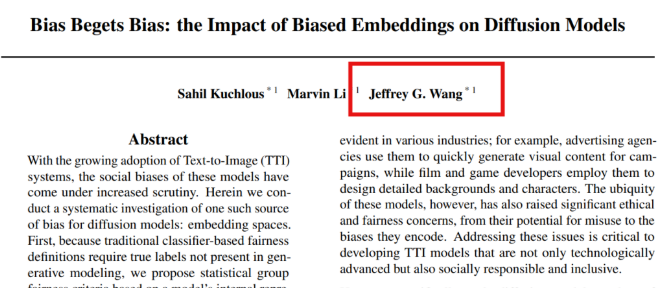Recently, Chinese researcher Jeffrey Wang from Harvard University officially joined OpenAI as a researcher in the foundational team, focusing on model pre-training and inference work. This news has garnered widespread attention, and OpenAI's co-founder and president, Greg Brockman, warmly welcomed Jeffrey to the team.

Jeffrey Wang has an impressive academic background. He graduated from a high school in California, where he received a national award for "developing statistical methods to detect 3D genomic structural changes," successfully qualifying for the Regeneron Science Talent Search, often referred to as the "Junior Nobel Prize" in the United States. In 2021, he began studying at Harvard University, majoring in Mathematics and Computer Science, with a minor in English. During his time at Harvard, Jeffrey not only actively participated in research but also took on teaching responsibilities, instructing courses in Computer Science and Statistics, and serving as a researcher at the School of Engineering and Applied Sciences, focusing on the robustness and privacy of machine learning models.
Jeffrey Wang's research achievements at Harvard have been quite fruitful. His two papers were presented at the NeurIPS SoLar (2023) and ICML (2024) conferences. One paper, titled "MoPe: A Model Perturbation-based Language Model Privacy Attack," introduces a new tool called MoPe, which effectively determines whether specific text has been used to train large language models. The other paper, "Bias Begets Bias: The Impact of Biased Embeddings on Diffusion Models," explores how biases in the embedding space affect the fairness of diffusion models, providing a new theoretical framework for the field.
In addition to his academic pursuits, Jeffrey Wang is also a somewhat accomplished writer. His works have been published in The Adroit Journal, and he has shared stories related to history, science, and statistics on the well-known online Q&A platform Quora, garnering over 6 million views.
Jeffrey Wang's joining not only marks a significant advancement in his career in the field of artificial intelligence but also showcases OpenAI's attractiveness to top talent. More and more young talents are diving into AI research, and OpenAI seems to have become an ideal stage for them to pursue their dreams.








